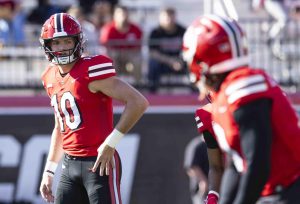WKU NAACP hosting Troy Davis forum
October 24, 2011
On Sept. 21, 2011 Troy Davis was executed by the state of Georgia after being convicted of the murder of a police officer.
Davis’ trial spanned more than 20 years with changing execution dates and federal appeals, all while garnering national media attention. His death sparked protest and outrage across the country by people who believed there was not sufficient evidence to execute Davis.
WKU’s chapter of the National Association for the Advancement of Colored People will host a panel discussion about his death, what it means in America, and answer questions for students who are confused by the situation at 7 p.m. Wednesday in the Mass Media Auditorium.
Chapter vice-president and Louisville junior Brittany Carter said that she feels Davis death was unnecessary and unfair.
“There are so many other people out there who are involved in lawsuits and trials who have not been executed for their crimes,” Carter said. “Troy Davis was put to death on hearsay. This has been going on for 20 something years, three or four presidents have been in office, celebrities have supported this man, and still he was convicted and killed on hearsay.
“And I don’t think he had a fair chance and I really do think it’s unfortunate and I do think it’s something people really want to talk about.”
Saundra Ardrey, department head of political science, Howard Bailey, vice president for Student Affairs and Lynne Holland, director of Career Services Center, will serve on the panel while students from the chapter group moderate.
Atlanta senior Cedric Jackson, the group’s treasurer, said the NAACP hopes for the forum simply to open up conversations about the situation.
“We just want a lot of discussion about the case and a lot of students have questions,” he said. “This will allow (those questions) to be answered by respected faculty members in a respected manner.”
Louisville junior Paul Beasley, secretary of the campus chapter NAACP, said the group has been looking for things to do, and the Davis situation seemed like a good option for a forum.
Carter said ultimately the decision comes down to students to decide if they want to do anything about the situation.
“We’re at a college campus. Anything can happen,” Carter said. “You can be a voice for the people, with the people, and by the people. This is something the people want and we’re going to give it to them.”












